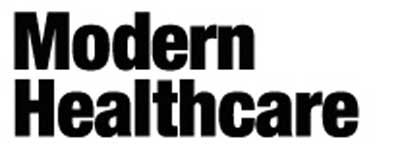Overview
South Dakota has been active in regulating prescription drug pricing and transparency. The state enacted a law to prohibit pharmacy benefit managers from prohibiting or penalizing a pharmacist for providing cost-sharing information on the amount a covered individual may pay for a particular prescription drug. The legislature also passed legislation that requires health carriers to provide prospective enrollees with drug formularies and detailed plan descriptions that explain plan coverage limitations and their financial impact on enrollees (e.g., co-insurances, out-of-pocket expenses, etc.).
In healthcare markets, the state’s antitrust legislation provides that nonprofit hospitals must provide notice to the state attorney general for any mergers, acquisitions, or related transactions. The state also limits the duration of noncompete clauses in physician employment contracts to two years after the date of termination and within a specified geographic area. South Dakota also promotes telemedicine with mandated coverage parity and cost-sharing parity for telehealth services.
See below for an overview of existing South Dakota state mandates. Click on citation tab for detailed information of specific statutes (click link to download statute text).
State Action
Latest Legislative Session: 1/10/2023 - 3/27/2023 (2023 term). *Current session bill updates are ongoing. Check back weekly for updates.
HB 1003 – South Dakota
Introduced: 2021 Status: Enacted
An act to revise certain provisions regarding credit for reinsurance. Credit must be allowed when the reinsurance is ceded to an assuming insurer with its head office or domicile in a reciprocal jurisdiction.
HB 1005 – South Dakota
Introduced: 2020 Status: Enacted
An Act to revise certain provisions regarding the use of telehealth technologies.
HB 1017 – South Dakota
Introduced: 2020 Status: Enacted
An Act to provide for certain insurer corporate governance disclosure requirements.
HB 1029 – South Dakota
Introduced: 2022 Status: Inactive / Dead
An Act to revise the definition of telehealth for purposes of health insurance policies.
HB 1087 – South Dakota
Introduced: 2023 Status: Inactive / Dead
Prohibit restrictive employment contracts for health care workers
S.D. Codified Laws § 36-4A-29. Physician supervision–Methods: Physician Assistants – South Dakota
Introduced: Status: Enacted
The physician, by supervision, continuous monitoring, and evaluation accepts initial and continuing responsibility for the physician assistant or assistants responsible to the physician until such relationship is terminated. See definition section S.D. Codified Laws § 36-4A-1.
Download
S.D. Codified Laws § 36-9-1. Definition of terms: Registered and Practical Nurses – South Dakota
Introduced: Status: Enacted
Definition section for Registered and Practical Nurses chapter.
Download
S.D. Codified Laws § 36-9-3. Practice of registered nurse: Registered and Practical Nurses – South Dakota
Introduced: Status: Enacted
Scope of practice statute for registered nurses. See definition section S.D. Codified Laws § 36-9-1.
Download
S.D. Codified Laws § 36-9-3.1. Functions performed by nurse anesthetist–Collaboration with physician: Registered and Practical Nurses – South Dakota
Introduced: Status: Enacted
Scope of practice statute for nurses anesthetists. See definition section S.D. Codified Laws § 36-9-1.
Download
S.D. Codified Laws § 36-9-4. Practice of licensed practical nurse: Registered and Practical Nurses – South Dakota
Introduced: Status: Enacted
Scope of practice statute for licensed practical nurses. See definition section S.D. Codified Laws § 36-9-1.
Download
In re: Suboxone Antitrust Litigation (State of Wisconsin, et al. v. Indivior Inc, et al.) – Alabama, Alaska, Arkansas, California, Colorado, Connecticut, Delaware, District of Columbia, Florida, Georgia, Hawaii, Idaho, Illinois, Iowa, Kansas, Kentucky, Louisiana, Maine, Maryland, Massachusetts, Michigan, Minnesota, Mississippi, Missouri, Nebraska, New Hampshire, New Mexico, New York, North Carolina, Ohio, Oklahoma, Oregon, Pennsylvania, South Dakota, Tennessee, Utah, Virginia, Washington, West Virginia, Wisconsin
District Court: E.D. Pennsylvania Status: Pending
In September 2016, 35 state attorneys general and the District of Columbia brought a multi-district case against pharmaceutical manufacturer Indivior, MonoSol RX et al., alleging …
Additional Resources
BALLOT MEASURES
- Voters in the November 2014 election cycle approved Initiated Measure 17 with a 62-38 percent margin, adopting an Any Willing Provider (AWP) statute which states that no health insurer may exclude a healthcare provider from participating in the insurers panel of providers if the provider is located within the geographic coverage of the benefit plan and is willing and qualified to meet the terms and conditions of participation as established by the provider.
- Initiated Measure 17 was opposed by health insurers because they claim it prevents carriers from controlling costs by negotiating volume discounts with providers. Insurers are also concerned that opening their networks to physician-owned specialty hospitals may incentivize cream skimming and disrupt the narrow-network trend, which otherwise allows insurers to control cost growth by excluding certain providers on the basis of their overall cost. Advocates of the measure assert that the law will protect consumer choice by allowing more providers into benefit plan panels.
STATE BUDGET
South Dakota operates on an annual budget cycle. The governor submits a proposed budget in December and the legislature typically adopts a budget in March. The fiscal year runs from July 1 through June 30 and is referred to by the year in which it ends.
KEY RESOURCES
- South Dakota Legislature
- South Dakota Office of the Attorney General
- South Dakota Department of Labor and Regulation
- South Dakota Association of Healthcare Organizations
- South Dakota Bureau of Finance and Management




